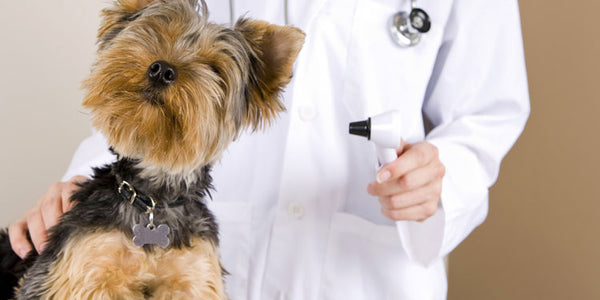Acquiring a new pup is similar to bringing home a baby. From birth until about six months, your newborn or young canine will have to eat nearly 2 – 4 times as much as its adult counterpart. After all, puppies tend to expand in size rather rapidly after the first week of birth, and they do need plenty of energy and nutrients to support all that growth!
This stage of a dog’s life is most crucial to its development. Hence, it is up to you – the owner – to know how and what to feed your pet in order to ensure that it develops optimally.
At the Beginning
After introducing your puppy to its new home, it is recommend that you feed it the diet which the breeder, pet shop or animal shelter had been previously supplying it – as a sudden change of diet may cause tummy upsets or diarrhoea. You may eventually switch food products later on by mixing in the new food with the old on a gradual basis.
Large Builds, Delicate Needs
Large breeds of dogs are prone to skeletal problems if they are not fed properly during puppyhood, as they will require special diets with the right balance of nutrients to moderate their rate of growth, and give their bones and joints sufficient time to develop. Rapid weight gain due to high fat and caloric intake will lead to excessive body weight, which the puppies’ bones and muscles are unable to support fully. On the other hand, too much calcium may lead to the development of bone abnormalities. Hence, it is ideal to only go for puppy food that is formulated for large breeds, such as those offered by Eukanuba, Canine Caviar and Eagle Pro.
Feeding the Tiny Ones
In comparison, small breed puppies develop more quickly, such that they will require a diversity of meats that provide a rich combination of proteins and fats. Their kibble will also have to be bite-sized to better suit their smaller mouths, teeth and stomachs. Delicious recipes from brands like Wellness offer an assortment of meats in a single formula to accomplish just that, while Royal Canin even tailors its dog food to suit specific breeds and their recommended diets.
Time is Key
Similarly to the case of children, you should teach your puppies from the start that food is not always available, so that they will learn to eat whenever it’s time to (this means that keeping their bowls perpetually filled is a big no-no!). Offer them food in measured amounts thrice a day, preferably at consistent timings with about 5 hour intervals in between. Additionally, try to keep the last meal of the day a few hours before bedtime so that they will have sufficient time to pass motion before turning in. Your puppy’s tender gums may be prone to soreness from eating dry food, but adding some warm water to its kibble by mixing 4 parts dry food with 1 part water would help to moisten the meal. For most dogs, puppy food should be continue to be a main component of their diets until they are about 9 to 10 months of age.
Encourage Good Eating Habits
Almost all dogs are unable to resist treats. If you are to feed your pup a tasty morsel or two during the training process, opt for healthier choices and make sure keep the treat-feeding within the boundaries of moderation. Try not to give your puppy table scraps as this action encourages undesirable behaviors such as begging, and more importantly, may cause nutritional imbalance.
Once you have made your selection of quality puppy food, keep your pet consistently on this diet until it reaches 80 to 90% of his anticipated adult weight. For most dogs, this occurs around 9 months of age. Take note to never introduce additional supplements to your pup’s diet unless advised by a veterinarian, as additional vitamins and minerals may upset their nutritional balance and may even cause illnesses. Also, be sure to keep all your pup’s food and water bowls clean at all times.
Puppyhood is a critical period of a dog’s life where its diet and feeding regimen are bound to greatly impact its physical and mental development. During this time, you should frequently monitor your pet’s weight and energy levels, and make the appropriate adjustments to its food and eating routine whenever necessary.



